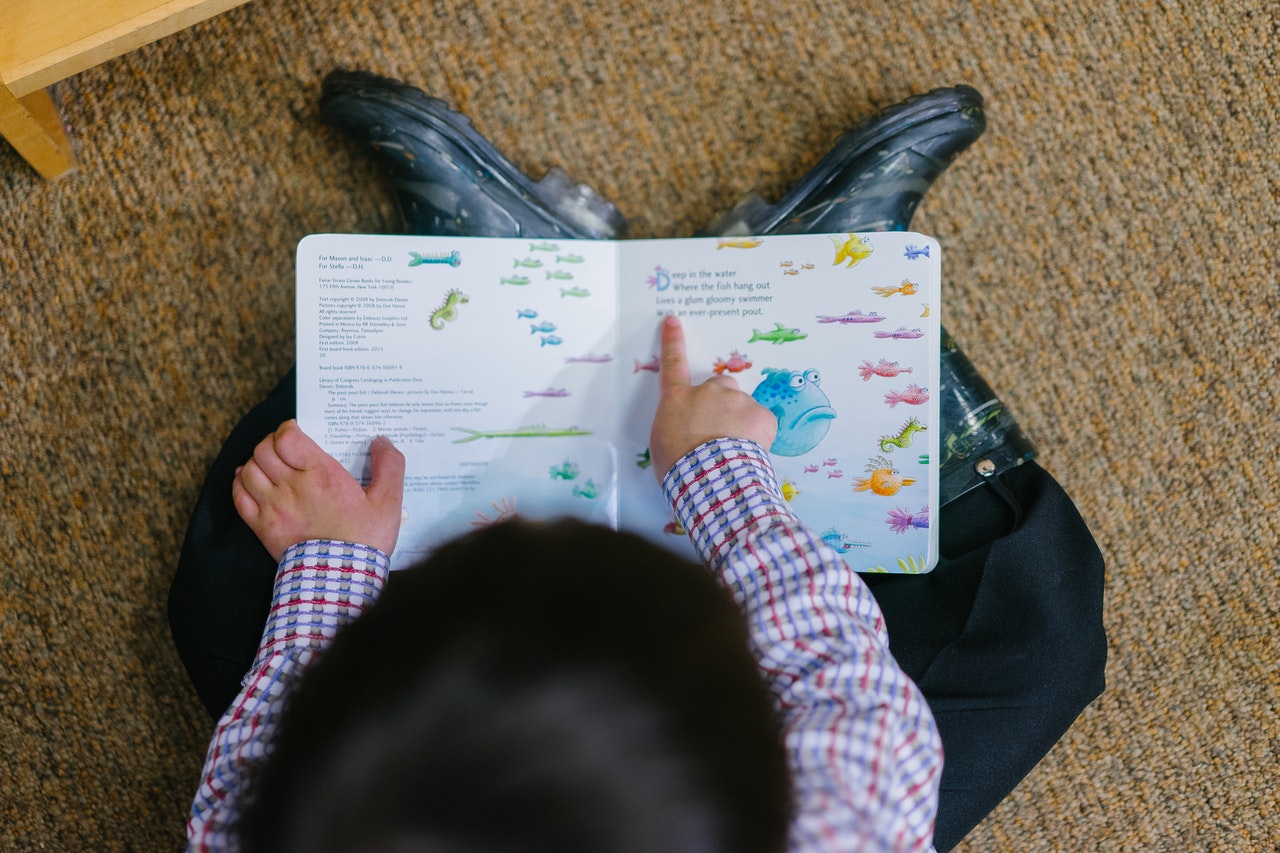The process of selecting a suitable tutoring programme for your child might be stressful. There is a plethora of possibilities, and it's tough to pick the right one.
Schools like Sylvan and Kumon offer supplemental academic support. First, let's agree that all options provide for students' requirements, but take different approaches to doing so. Feel free to get in touch if you have any questions about which programme could be better for students or where you can learn more.
Sylvan is among the most well-known American tutoring services. There is a focus on mastery learning across subject areas, including mathematics, reading, writing, and language arts. Group sessions for students of varying ages and skill levels are also offered by Sylvan. As a means of keeping students interested, the curriculum promotes tailored education through fun, thought-provoking exercises that strengthen both conceptual understanding and procedural competence.
One more well-known coaching method is Kumon. While Kumon's primary concentration is on mathematics, the organisation also offers classes in reading, writing, and understanding. Kumon's curriculum has existed since 1986, giving the company more than enough time to hone its tried-and-true methods, which rely heavily on drills of repetition to cement new knowledge.
Sylvan vs Kumon
Do you wish to find a method to help your child succeed in school? If so, you're definitely considering Sylvan or Kumon, two of the most prominent American tutoring companies. How do these two child care services compare, and which one do you think is best for your kid? Let's compare and contrast Sylvan and Kumon and look at their key similarities and differences.
Make use of Online Tutoring
If you need help with a subject, but can't get in-person tuition, try looking into online resources first. Students can take advantage of an adaptive test and a tailor-made learning plan. This ensures that your child will focus on learning the knowledge they need to reach their goals. Rather than leaving things up to chance, it takes the guesswork out of practise and puts the emphasis where it belongs: on improving performance.
Online tutoring has the potential to be as helpful as, if not more so than, face-to-face instruction. It's less expensive, safer (no picking up and dropping off), and hassle-free. Really, you ought to give it some thought.
Analyzing Sylvan and Kumon: The Fundamentals
Kumon and Sylvan are two in-person educational service providers. If you want to help your child with their schoolwork, they'll need to come in person once or twice a week. Reading and mathematics tutoring are available from both Kumon and Sylvan. Sylvan provides extensive material, including college entrance exam preparation. Unlike Sylvan, which caters to students of all ages, Kumon concentrates exclusively on elementary schoolers.
Franchising allows both businesses to have locally owned and operated branches under the supervision of a larger parent company. This means that there is likely to be a unified curriculum across locations, but that the calibre of individual educators and the oversight they receive may differ. Dedicated teacher-owners operate some centres, while absentee tens-of-location-owners run others.
Perhaps unexpectedly, Kumon has approximately 25,000 centres across the globe as of 2017. Alternatively, Sylvan Learning operates out of roughly 750 locations. Because of their business model and the relatively high cost of establishing a Kumon, Kumon has become a global phenomenon.
The Sylvan Model
Sylvan's approach to tutoring is comprehensive, with programmes available for students of all ages and in all academic areas. Reading, mathematics, advanced mathematics, writing, homework assistance, study skills, test preparation, and a number of other academic camps are all included on their K-12 programmes page. A number of these establishments even provide opportunities in computer programming and other STEM fields for young people.
Sylvan offers small-group tutoring, in contrast to Kumon's one-on-one approach for reasons we'll go into shortly. In addition, Sylvan typically assigns one teacher to every three pupils. Therefore, Sylvan will have far higher prices than "class" based models like Kumon.
For what it's worth, I think Sylvan's method of conducting a tutoring service is a bit of a scattershot. I find it hard to believe that they will find a niche that will distinguish their business from others that also cover all grade levels and topic areas. But if you're the kind of parent who'd rather not go out and locate an individual tutor, you might find that Sylvan offers a wide array of personnel who can assist you. Teachers will follow a tried-and-true curriculum. However, working directly with a subject-matter expert can save you time and money if you are able to locate one on your own.
The Kumon Model
Though Kumon does provide an after-school programme for older children, it does not follow the school's customary concentration on reading and mathematics and instead caters to the needs of students who are younger. Math and reading lessons from Kumon rely heavily on worksheets. Students practise their number sense and learn new math facts in math class. In order to better understand many different types of writing, students engage in reading exercises. The Kumon website features sample lessons from both the reading and math programmes.
Although Kumon does not emphasise small-group training, your child may still receive some small-group assistance or modification depending on the centre. Students are often situated in a large room with one supervisor, typically the owner-operator, and several workers, mostly high school students. After picking up their daily assignments, students have 30 minutes to complete them once inside. Then, after class is over, they'll have homework to complete during the week.
Kumon is effective for some students. Children who have significant difficulties with mathematics often find success at Kumon. On the other hand, the arithmetic approach requires a lot of practise but may not help students develop a solid foundation for addressing problems.
Comparison of Tutoring Programs: Sylvan vs. Kumon
There is a wide range of scenarios in which your kids could use some extra help after school. It's possible that they're starting to lag behind in their studies. It's possible that they're not succeeding academically in a standard classroom. They may need some encouragement from you to reach their full potential. A better SAT score could help you get into a better college.
Choosing a tutoring programme can be difficult due to the wide variety of approaches, prerequisites, and potential rewards available. Identifying the appropriate tutoring programme for your child might be challenging.
There are numerous companies that offer tutoring services, but two of the largest are Kumon and Sylvan Learning. There are some commonalities between the programmes, but those similarities are outweighed by the numerous differences. Let's cut through the hype and compare Sylvan vs Kumon on the pedagogical approaches they take, the value for money, the results they've seen in the classroom, and more so you can make an informed decision about which is the better fit for your child.
Evaluation of Various Methods of Instruction
Let's begin with the parallels that can be drawn between Kumon and Sylvan. Both of them offer supplemental instruction in English and math to school-aged children after regular classes have ended for the day. Students are put in the appropriate programmes based on their individual needs and abilities, regardless of their grade level. This creates a level playing field for students at all skill levels.
Sylvan and Kumon both help children from Kindergarten through High School. Due to the fact that the tutoring programme is not affiliated with your kid's school, there is a chance that the techniques taught there will be different from those used in class. The pupil could become confused as a result of this.
Kumon and Sylvan use quite distinct teaching methods.
Kumon emphasises practise and drills. Following the initial evaluation, students begin at a lower level in order to gain self-assurance and become accustomed to the worksheet style. Afterwards, they employ self-directed learning to complete activity sheets organised by topic. Daily practise is expected, including homework papers for parents to grade, and there is minimal direct instruction from classroom leaders. The programme relies heavily on repetition. A learner, for instance, might be given 200 addition worksheets aimed at beginners without ever being exposed to subtraction. That's an astounding 3,620 arithmetic problems!
Unlike some other tutoring services, Sylvan Learning focuses on providing traditional tutoring services including one-on-one sessions, academic counselling, and standardised test preparation. Sylvan's method is more vigourous than Kumon's since it ensures pupils will actually learn fifty skills in fifty hours of training.
And Sylvan's method of tutoring is geared towards modern technology. The teacher uses an iPad to show the students their lessons. SylvanSync is a learning management system that allows instructors to personalise lessons for each student. The MySylvan portal also allows students to access their homework from home and allows parents to monitor their child's progress in real time.
The Academic Outcomes of Sylvan vs. Kumon
In what ways do these various software options influence student performance? Different people will get different results, but here is what we do know.
Sylvan claims that its students who take part in its math programme improve their grades by 51% compared to those who merely took part in their regular school's arithmetic curriculum. Reading kids had an even higher impact, with Sylvan students achieving 98 percent better academic growth than non-Sylvan pupils.
Kumon has not disclosed any data on the program's effectiveness. On the other hand, many parents have spoken up about their children's struggles. The good news is that it appears to be effective. One drawback is that people tend to whine a lot. When there are no classes, such as during the summer, parents are responsible for supervising and grading worksheets, thus their involvement is crucial to the success of the programme. Yes, some parents have complained that their children have hidden unfinished writing assignments behind the sofa cushions.
Comparison of Sylvan and Kumon, Final Thoughts
Kumon and Sylvan can assist your child with reading and math from elementary school through high school.
The Kumon method, which comprises daily worksheets and an emphasis on repetition, is less expensive. Students are expected to learn on their own throughout class time with minimal guidance from teachers.
When compared to traditional schools, Sylvan's three-to-one student-to-teacher ratio allows for greater hands-on learning. Although Sylvan is more expensive, the company claims that its pupils notice significant gains in their academic performance as a result of using the service.
The decision between Kumon and Sylvan will come down to your child's learning style, your availability, and your financial situation.
Remember that more and more academic tools will become available as your educational projects to excel. Learners in both college and high school can get micro-tutoring whenever they need it using apps like OneClass Homework Help. Students will be able to go on without being slowed down by problems they can't figure out, thanks to the availability of help whenever it's needed.
Students will have access to even more online materials once they reach college. OneClass's note-sharing platform, for instance, gives students access to an infinite library of lecture notes and study guides created and shared by other students. Finding relevant resources is made easier by allowing students to filter their searches by institution, subject, and instructor. More than 90% of users have improved by at least one letter grade as a direct result of making use of shared resources.
Does Sylvan or Kumon help?
Your child is sure to progress and thrive with the help of a tutor whether you choose to hire one online or in person. It's important to consider your child's unique personality when choosing between Sylvan and Kumon.
Mastery Genius could be a good option if your child has the attention span for computer-based learning and you're hoping for rapid, visible improvement. However, does your kid actually have trouble counting and understanding math? Thus, it is suggested that they enrol in Kumon. If your child has trouble paying attention or needs a mobile device to keep them engaged in schoolwork, working with a private tutor or Sylvan might be the best option.
Conclusion
Sylvan is one of the most well-known tutoring companies in the US. Kumon focuses primarily on arithmetic, but they also include programmes for reading, writing, and comprehension. Some research suggests that online tutoring can be just as effective as in-person sessions. Kumon and Sylvan are two companies that offer individualised teaching for subjects like reading and math. Sylvan offers a wide variety of resources, including practise tests for entrance exams to universities.
Kumon focuses solely on elementary school pupils, whereas Sylvan serves students of varying ages. Through franchising, both companies can expand by opening franchises in different parts of the world. Two of the most well-known teaching companies are Kumon and Sylvan. Kumon focuses on the educational requirements of younger students. School-aged youngsters can get extra help in English and arithmetic from Sylvan and Kumon.
When compared to Kumon's approach, Sylvan's is more rigors because it guarantees students will acquire fifty skills in fifty hours of instruction. The instructor displays the course material on an iPad and adapts it to the needs of each student. Your child can get help in reading and arithmetic from Kumon and Sylvan from elementary school all the way through high school. With its daily worksheets and emphasis on repetition, the Kumon technique is more cost-effective. Despite the higher cost, Sylvan guarantees its students will improve their grades and test scores.
FAQS about tutoring programs
An excellent tutor will invest time in getting to know the student and their loved ones. They'll show empathy and kindness, but also maintain efficiency and professionalism. A tutor's ability to connect with their pupil is the determining factor in how successful they are.
While the benefits of Kumon are well-documented, the program's emphasis on drill and practise can wear on students if they aren't careful. Engaging in novel and varied activities can help children learn in a variety of ways and maintain their interest in the material, both of which are important for long-term retention.
Reading and math tutoring are available from both Kumon and Sylvan. Sylvan provides extensive material, including college entrance exam preparation. Although Sylvan serves students of all ages, Kumon is geared mostly on elementary schoolers.
For those interested in self-improvement and mindfulness, José Silva created The Silva Method. Relaxation, enhanced higher-brain functioning, and psi abilities like clairvoyance are just some of the ways it's said to help you perform better. Cult, new religious movement, and "self-religion" are only some of the labels that have been applied to this phenomenon.
Content Summary
- The process of selecting a suitable tutoring programme for your child might be stressful.
- Schools like Sylvan and Kumon offer supplemental academic support.
- How do these two child care services compare, and which one do you think is best for your kid?
- Kumon and Sylvan are two in-person educational service providers.
- Reading and mathematics tutoring are available from both Kumon and Sylvan.
- Perhaps unexpectedly, Kumon has approximately 25,000 centres across the globe as of 2017.
- Alternatively, Sylvan Learning operates out of roughly 750 locations.
- Because of their business model and the relatively high cost of establishing a Kumon, Kumon has become a global phenomenon.
- Sylvan's approach to tutoring is comprehensive, with programmes available for students of all ages and in all academic areas.
- Sylvan offers small-group tutoring, in contrast to Kumon's one-on-one approach for reasons we'll go into shortly.
- But if you're the kind of parent who'd rather not go out and locate an individual tutor, you might find that Sylvan offers a wide array of personnel who can assist you.
- Though Kumon does provide an after-school programme for older children, it does not follow the school's customary concentration on reading and mathematics and instead caters to the needs of students who are younger.
- Math and reading lessons from Kumon rely heavily on worksheets.
- The Kumon website features sample lessons from both the reading and math programmes.
- There is a wide range of scenarios in which your kids could use some extra help after school.
- Identifying the appropriate tutoring programme for your child might be challenging.
- Both of them offer supplemental instruction in English and math to school-aged children after regular classes have ended for the day.
- Due to the fact that the tutoring programme is not affiliated with your kid's school, there is a chance that the techniques taught there will be different from those used in class.
- Kumon and Sylvan use quite distinct teaching methods.
- And Sylvan's method of tutoring is geared towards modern technology.
- Kumon has not disclosed any data on the program's effectiveness.
- On the other hand, many parents have spoken up about their children's struggles.
- The good news is that it appears to be effective.
- When there are no classes, such as during the summer, parents are responsible for supervising and grading worksheets, thus their involvement is crucial to the success of the programme.
- Kumon and Sylvan can assist your child with reading and math from elementary school through high school.
- The Kumon method, which comprises daily worksheets and an emphasis on repetition, is less expensive.
- When compared to traditional schools, Sylvan's three-to-one student-to-teacher ratio allows for greater hands-on learning.
- Although Sylvan is more expensive, the company claims that its pupils notice significant gains in their academic performance as a result of using the service.
- The decision between Kumon and Sylvan will come down to your child's learning style, your availability, and your financial situation.
- Learners in both college and high school can get micro-tutoring whenever they need it using apps like OneClass Homework Help.
- Students will have access to even more online materials once they reach college.
- Your child is sure to progress and thrive with the help of a tutor whether you choose to hire one online or in person.
- It's important to consider your child's unique personality when choosing between Sylvan and Kumon.
- If your child has trouble paying attention or needs a mobile device to keep them engaged in schoolwork, working with a private tutor or Sylvan might be the best option.



